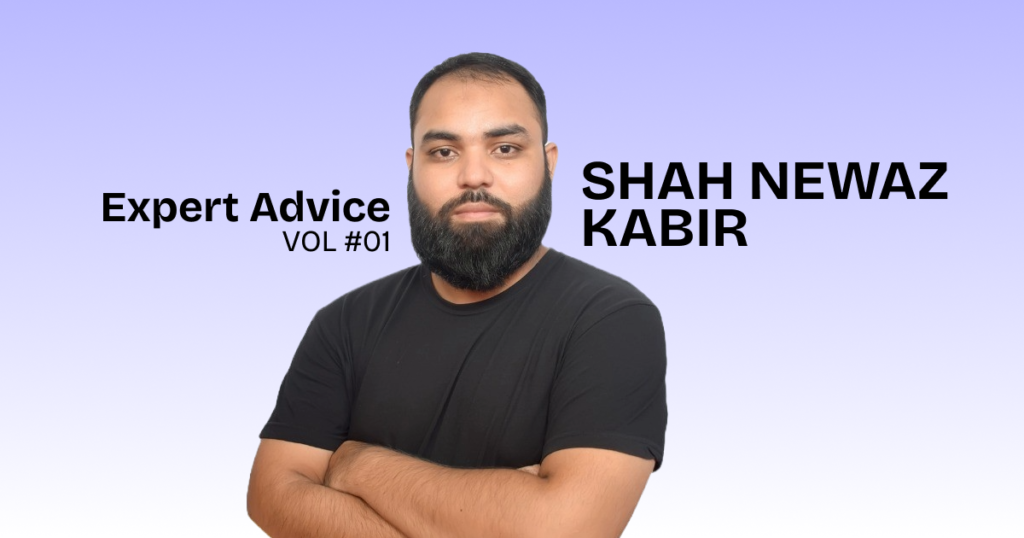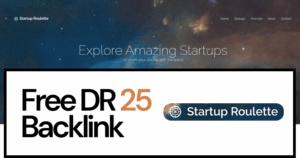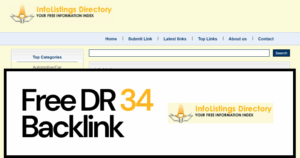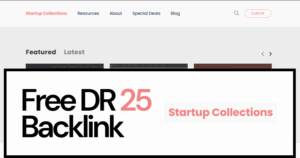Every SEO expert starts somewhere, & for Shah Newaz Kabir, the journey from a newbie to a seasoned ace is nothing short of inspiring. With humble beginnings in F-commerce and a passion ignited by curiosity, Shah Newaz’s story is a testament to the power of persistence, learning, & embracing change. From discovering the basics of SEO to driving a million visitors to a website, Shah Newaz has navigated the ever-evolving landscape of search engine optimization with insight and innovation. In this interview, he shares his milestones, lessons, and unique perspective on the future of SEO. Let’s move ahead.
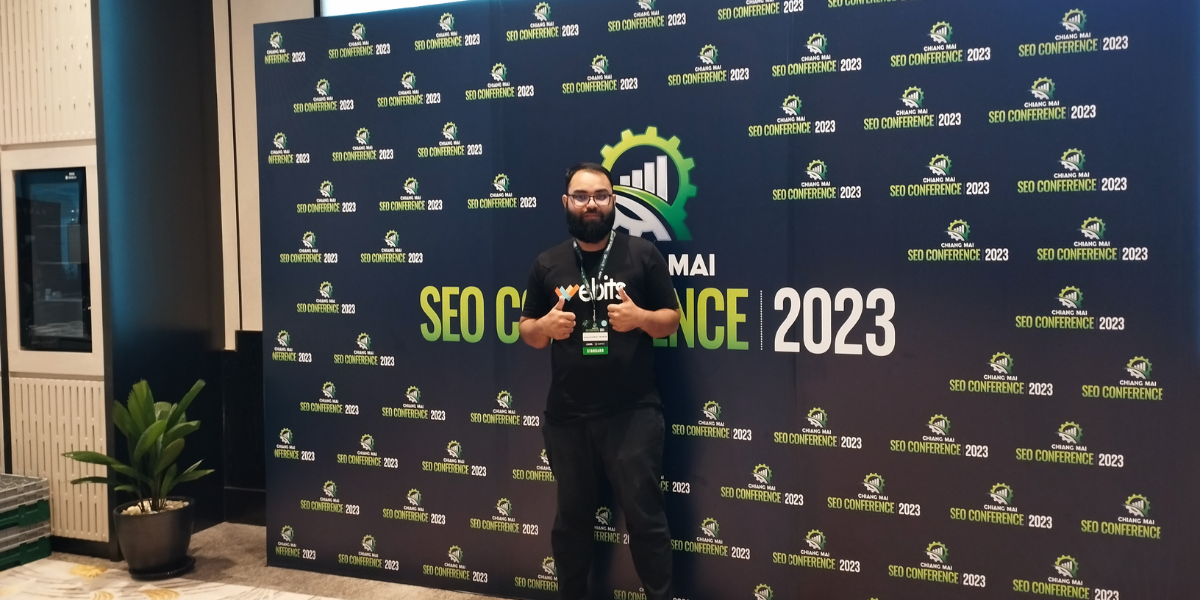
Tell us something about yourself. How did you first get into SEO? Was there a moment when you realized this was your calling?
Okay, so I had two “aha” moments that led me into SEO. The first was when I was running a successful F-commerce business and wanted to launch a website to make it more professional. I built the site from scratch using WordPress, added products, integrated everything, and then searched for my brand on Google, only to find nothing. Frustrated, I searched for why my website wasn’t showing up (classic first timer), and that’s when I first learned about SEO.
Part two, I started working as a Digital Marketing Executive for an IT company. To sharpen my skills, I took a bundled digital marketing course on Udemy, with a focus on social media and ads. At first it was really boring to me, but by the end of the course, I realized it was exactly the kind of challenge that I’d like to take. And the journey began from there.
What’s the biggest change you’ve seen in SEO over the years?
In the past few years, there have been some significant updates in SEO, but the biggest landmark has undoubtedly been the rise of AI. AI has changed, shifted, and modernized the way we approach SEO and digital marketing as a whole.
In terms of impact, I would say SEO is one of the industries where it has had the biggest impact. From short-form to long-form content, strategy to everyday tasks, it’s really hard to find an aspect where AI can’t help you.
I also believe this is just the beginning. We’re seeing more and more creative tools powered by AI and AI agents slowly rolling out, making our teams more efficient than ever. It’s truly an amazing time to live in.
What are the most important statistics and numbers in SEO that you focus on?
Interesting question. Earlier, I would focus on all the SEO metrics that keep us motivated, like keyword ranks, traffic, clicks, and impressions. But I think I’ve moved past that era and now only care about the number of leads, sales, and revenue the SEO efforts have been able to achieve.
So things like:
- Leads generated
- Bookings
- Phone calls
- MRR/ARR
These are the sorts of things I focus on now.
How do you interpret these metrics to make strategic decisions?
Here’s a quote that sums it up: “Things that get measured are the things that get done.”
Many SEO teams chase top rankings for as many keywords as possible, without considering how it impacts the overall business goals and targets. For us, the metrics we track directly shape our strategy, from keyword research to audience targeting and every aspect of our SEO efforts.
For example, if we’re launching a new feature for our tool and the goal is to generate as many leads as possible for a waitlist, we focus on tracking the number of email submissions generated through SEO and content marketing, not just clicks or traffic from Google.
Similarly, if we aim to increase revenue for a B2B organization, we measure the number of sales generated from the website, rather than just keyword ranking positions. This allows us to be aligned with the business goals and not hung up on the vanity metrics.
What are your top three favorite SEO tools right now? Why do they stand out for you?
A couple of years back, I was a total tool nerd. Having as many SEO tools in my subscription felt very intimidating. Fast forward to today, I’m much more limited and selective about the tools I invest time in.
So, the three tools I use every day are:
SEMrush: A full-service SEO and marketing tool. It basically provides everything you need to run a campaign. From strategy to execution, content to backlinks, it helps with everything. They’re one of the best in the market, if not the best.
Google Search Console: A free tool from Google that gives the most accurate data about the performance of your website in Google SERPs. Plus, it highlights the technical issues you need to be aware of.
ChatGPT: Not truly an SEO tool, but nowadays, it’s hard to imagine doing anything without it. So, it would be a crime not to include it here.
What’s a common SEO myth you wish would just die already?
“AI content doesn’t rank on Google” – I don’t know how this is still a thing, yet a lot of people believe it. There are tons of statistics showing how Google’s SERPs are filled with AI content (not necessarily bad content though), how big brands are using it, and how everyone and their mom are using it and ranking pretty well. When you hear someone say it doesn’t work, it’s just sad and funny at the same time.
We’re still missing the point. It doesn’t matter if the content is written by AI or a human, the only thing that matters is whether it’s worth ranking. Instead of asking if the content is AI or human-generated, the real questions should be:
- Does it provide a unique perspective or new angle compared to others?
- Does the content answer the search query?
- Does it satisfy the user with all the information they need?
- Does it provide enough value to be worth ranking?
- Does the content engage the user and keep them on the page?
Can you share a memorable SEO win you’ve had? What made it special?
I was introduced to a very early AI startup, and I wasn’t alone here. I was part of a talented team of SEOs and writers. The product was creating a new market and had practically zero search demand. At first, it seemed almost impossible to “SEO” a website when there was no keyword search volume for what it was offering.
But luckily, I learned how to generate demand through SEO, and it was fascinating. Within a year and a half, the website was hitting close to 1 million visitors per month, achieved by a very small team.
What made this win special wasn’t just the results but how a small SEO team could reach such success. More so, this experience was the most memorable for me because of how smoothly the SEO processes were streamlined. It allowed for the production of quality content at scale, the natural attraction of backlinks, and the efficient operation of the entire SEO strategy. The entire journey was incredibly eye-opening.
What’s a rookie mistake you see a lot of businesses making with their SEO?
The first mistake I often see is businesses treating their blogs in completely inappropriate ways. Some business websites publish content like Wikipedia, trying to cover everything for everyone. Then, there’s the other type that chases keywords simply because they’re easy to rank for or because competitors are ranking for them.
In both cases, there’s no real connection between the SEO effort and the business’s goals, the services offered, or the clients they’re targeting. Most of the time, they’re chasing vanity metrics like traffic per month, content velocity, or DA/DR. The primary purpose of a blog or article section should be to educate customers about the services and solutions offered, targeting potential customers at different stages of their buying journey to help them make informed decisions; nothing more, nothing less.
Another common mistake is focusing too much on Google and not enough on the users. Yes, Google has specific ways of measuring a site’s quality, and the more you adhere to those, the better. But the end goal for Google is the same as ours: offering a better experience and more value to users.
Businesses often forget this and make Google their sole audience. That works until Google makes a minor tweak, and all the traffic and rankings disappear.
Bottom line, content should be written for humans and optimized for Google. This is the only way to sustain long-term growth.
How important is link building these days? Has its value changed over time?
Link building is as important as it was before. The value remains the same, if not more. But the standard of links has changed a lot. Back in the day, it was all about numbers and how many links you could get, which was easy to manipulate.
Today, it’s a whole new game, with Google measuring link quality based on a variety of factors. There’s no one-size-fits-all solution. Google has come a long way and is still improving how it evaluates links.
You could get a link from a high-traffic website with good DA/DR, but there’s no guarantee that link will help. One ‘good link’ might benefit one website but be totally worthless for another in a different niche. It’s all about relevance and authority.
When it comes to best practices, I don’t think any practice is definitively best or worst. The best link profile is one with more diversity. As long as it makes sense and adds value, any approach can be beneficial for a website.
What’s your take on AI in SEO? Friend or foe?
Definitely a good friend. No matter what stage of SEO you’re in, life is too short for repetitive tasks, time-consuming calculations, or simple tasks that AI can handle. Just delegate, utilize, and enjoy the power AI brings to your workflow.
Imagine viewing electricity as your enemy—how far could you go? In my opinion, AI is another general-purpose technology, much like electricity, that can power all industries and segments. The sooner we embrace this, the better.
What’s your process for keeping clients calm when their rankings take a temporary dip?
I prefer to avoid clients who lose their cool over a temporary fluctuation in keyword rankings. I don’t believe it’s something that should be a concern if we’re measuring the right metrics. If leads, sales, or inquiries drop significantly, or if the main pages experience a noticeable decline in traffic, that’s when we need to investigate and resolve the issue.
But again, my focus is more on identifying and solving the problem rather than managing the client’s emotions. After all, they hired me as an SEO manager, not an anger management coach, haha!
Where can we learn more about you and your work?
Shah Newaz Kabir – SEO Manager at AUQ
Connect with Shah Newaz at:
Website
LinkedIn Profile
Subscribe to his newsletter
Summarizing
Shah Newaz Kabir’s journey is a remarkable reminder that success in SEO comes from a mix of curiosity, continuous learning, and aligning efforts with real business impact. Speaking with Shah Newaz highlighted the importance of focusing on meaningful metrics, embracing innovation like AI, and staying adaptable in an ever-changing field. His perspective offers not just technical insights but also a strategic mindset that any SEO professional can learn from. It’s clear that Shah’s approach isn’t just about achieving rankings, it’s about driving real value and long-term success.

